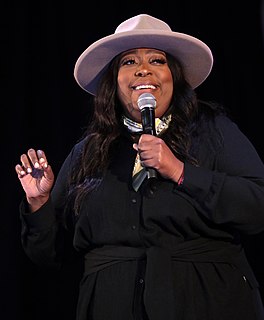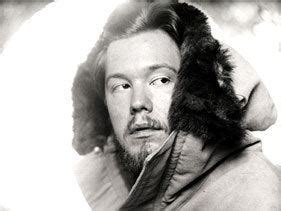A Quote by Lydia Lunch
I used to think feminism was a liberating force - now I see many of those people are just censors under a different name.
Related Quotes
Sex workers are the last women police stand in to protect. Sex workers are the last people that room is made for in many ways. You get a different kind of feminism if you put people at the margins at the center. It's a recently resonant lesson, but black feminists have been saying this for decades. Now when I talk to people engaged in sex workers' rights advocacy and people who identify as intersectional feminists, this is the air they breathe. We can't just make feminism about improving the lives of all women. Because there is no such thing as all women and universal female experience.
I know I certainly wouldn't be writing books if it hadn't been for the feminist blogosphere, and I think that's a really amazing thing. And just the sheer power of outreach I think is incredible. It used to be that if someone was to get involved in feminism, it was probably because they were already interested. They were already interested in feminism; they were already interested in being an activist, and they found their way to like a NOW meeting or to a consciousness-raising group or something like that.
There was no real strategic decision about editorial tone. It was kind of a write whatever you want to write, and we'll see how it goes. I think that we lucked out in that all of the women who started writing at Feministing.com were really funny, and I don't think that's something people are used to seeing or hearing when they read feminism. You know, you think feminism and you kind of think academic, women's studies, dry, humorless; there are all of these stereotypes that go along with what feminist thought is and what feminist writing is.
What we're seeing now is not just a backlash against feminism. When you look at guys like [Jesse] Helms in the '80s or even Reagan and Bush, there was a real political backlash against feminism. This is different. This is a parodic recreation of the destruction of traditional masculinity. Look at these hollow men. Look at Steve Bannon who wears sweat pants, who doesn't shave. Or Yiannopoulos who is just a clown. This is toxic masculinity. It's new. To see it as a return to the past is a mistake. It's the breakdown of traditional masculinity, rather than its retrenchment.
There's no such thing as post-feminism. It's like saying post-democracy, excuse me, what does that mean? We're nowhere near equality, so the very idea of post-feminism is ridiculous. The same people who 30-40 years ago said the women's movement is not necessary, 'it's going against nature, my wife is not interested' [are] the same people now saying 'well it used to be necessary but not anymore.' The very invention of the word post-feminism is the current form of resistance.
So many book sections in newspapers and magazines used to be lively and vibrant places. Now they are gone. You just don't see many reviews anymore. I can't control that, so I don't worry about it. I just try to do what I do and write books that people find every entertaining. I don't worry about the critics.
I think feminism has always been global. I think there's feminism everywhere throughout the world. I think, though, for Western feminism and for American feminism, it not so surprisingly continues to center Western feminism and American feminism. And I think the biggest hurdle American feminists have in terms of taking a more global approach is that too often when you hear American feminists talk about international feminism or women in other countries, it kind of goes along with this condescending point of view like we have to save the women of such-and-such country; we have to help them.


































